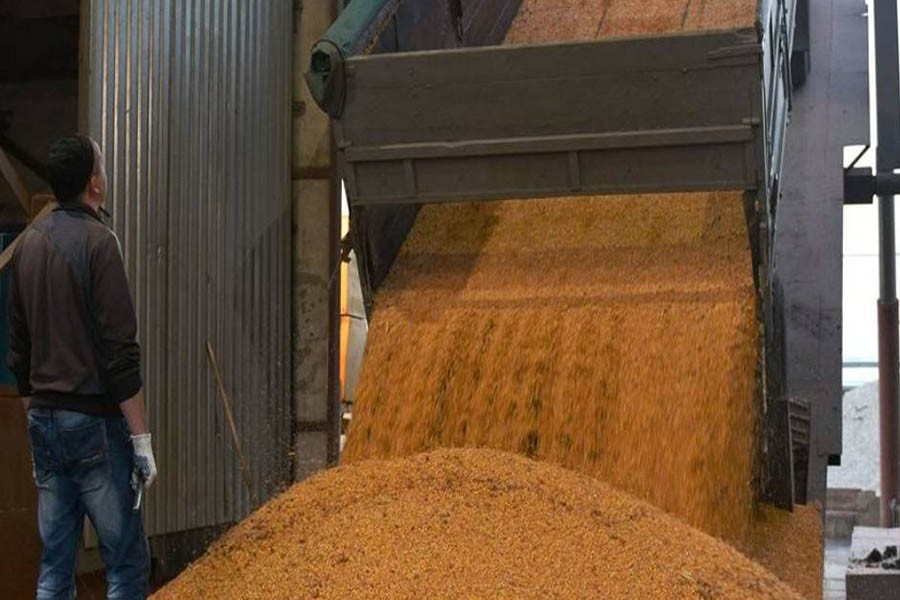Ports in Odesa of southern Ukraine, which have been closed because of war, must be reopened urgently to prevent the global hunger crisis from spinning out of control, says the United Nations World Food Programme (WFP).
The move would allow for food produced in the war-torn country, one of the top three grain exporters in the world, to flow freely to other nations as well as save "mountains" of grain from going to waste.
The war caused by Russia's invasion has blocked Black Sea ports in Ukraine - Europe's breadbasket -and stranded millions of tons of grain in silos on land, or on ships that are unable to move.
"Right now, Ukraine's grain silos are full. At the same time, 44 million people around the world are marching towards starvation," WFP Executive Director David Beasley said Friday.
If the ports are not opened soon, Ukrainian farmers will have nowhere to store the next harvest in July and August, the WFP said.
This raises the prospect that mountains of grain will go to waste amid a growing global hunger crisis, reports UNB.
Around 276 million people worldwide were facing acute hunger at the start of 2022, but this number is expected to rise by 47 million people - namely, affecting sub-Saharan Africa - if the war in Ukraine continues.
"We have to open up the ports so that food can move in and out of Ukraine. The world demands it because hundreds of millions of people globally depend on these supplies," said David Beasley.
"We're running out of time and the cost of inaction will be higher than anyone can imagine. I urge all parties involved to allow this food to get out of Ukraine to where it's desperately needed so we can avert the looming threat of famine."
Before the war, which began on February 24, most of the food produced in Ukraine was exported through the country's Black Sea ports.
More than 50 million tonnes of grain transited through the ports in the eight months before the war, and exports were enough to feed 400 million people.
The disruption caused by the war has already pushed food commodity prices well above record highs reached earlier this year.
In March, export prices for wheat and maize rose 22 per cent and 20 per cent on top of steep increases in 2021 and early 2022.


